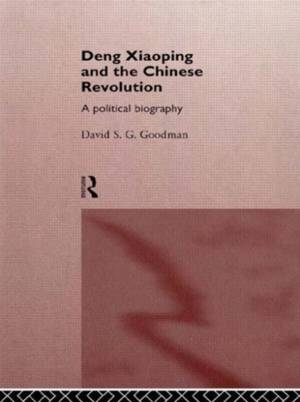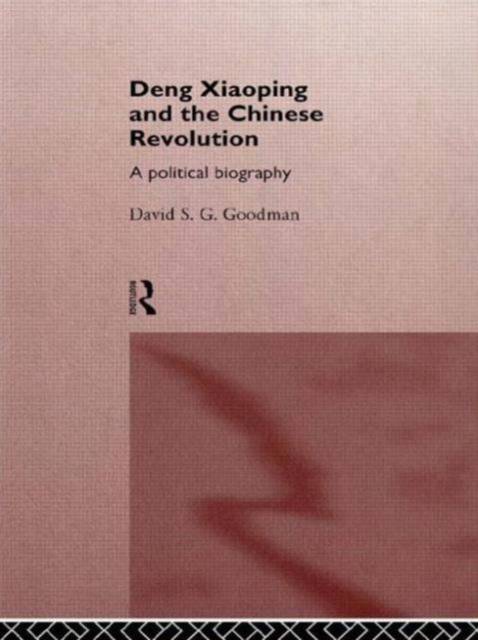
Je cadeautjes zeker op tijd in huis hebben voor de feestdagen? Kom langs in onze winkels en vind het perfecte geschenk!
- Afhalen na 1 uur in een winkel met voorraad
- Gratis thuislevering in België vanaf € 30
- Ruim aanbod met 7 miljoen producten
Je cadeautjes zeker op tijd in huis hebben voor de feestdagen? Kom langs in onze winkels en vind het perfecte geschenk!
- Afhalen na 1 uur in een winkel met voorraad
- Gratis thuislevering in België vanaf € 30
- Ruim aanbod met 7 miljoen producten
Zoeken
Omschrijving
To the outside world Deng Xiaoping represents a contradiction - he is both China's most successful moderniser, and the `Butcher of Beijing', China's supreme leader who must take responsibility for the events surrounding Tiananmen Square in June 1989. However, Deng the politition has no such contradiction: only the Chinese Communist Party can bring modernisation to China. For Deng any threat to the Communist Party is a threat to the project of China's modernisation. This book attempts to reach beyond the spectacular economic success of recent years to understand Deng's own particular role and the sources of his political power. Deng Xiaoping was involved with the communist movement before there was even a Communitst Party of China and his entire career has been shaped by both the party and the network of relationships and people within it. David Goodman explores the way in which Deng has survived being purged three times via his contacts with key politicians, Zhou Enlai in Paris in the early 1920s and Mao Zedong from 1933 to the early 1960s. His close relationship with the military from the Sino-Japanese War of 1937 through to the present day, has also enabled him to survive difficult political periods. Indeed, Deng's wartime experience, in the Taihang Mountains, plays a central but often overlooked role in his later career, particularly as a source of political support. David Goodman has been able to draw on the substantial documentary sources that have become available from China since 1989 as well as the analysis of Deng's political life that has proliferated inside the People's Republic in recent years. In addition, there is included a catalogue and analysis of the speeches and writings of Deng Xiaoping since 1938, that will prove to be an invaluable reference aid to his years of influence and power. The result is a balanced evaluation of Deng the politician that provides fresh insights into the career of one of the twentieth centuy's greatest political survivors.
Specificaties
Betrokkenen
- Auteur(s):
- Uitgeverij:
Inhoud
- Aantal bladzijden:
- 234
- Taal:
- Engels
- Reeks:
Eigenschappen
- Productcode (EAN):
- 9780415112536
- Verschijningsdatum:
- 10/11/1994
- Uitvoering:
- Paperback
- Formaat:
- Trade paperback (VS)
- Afmetingen:
- 155 mm x 239 mm
- Gewicht:
- 394 g

Alleen bij Standaard Boekhandel
+ 305 punten op je klantenkaart van Standaard Boekhandel
Beoordelingen
We publiceren alleen reviews die voldoen aan de voorwaarden voor reviews. Bekijk onze voorwaarden voor reviews.









